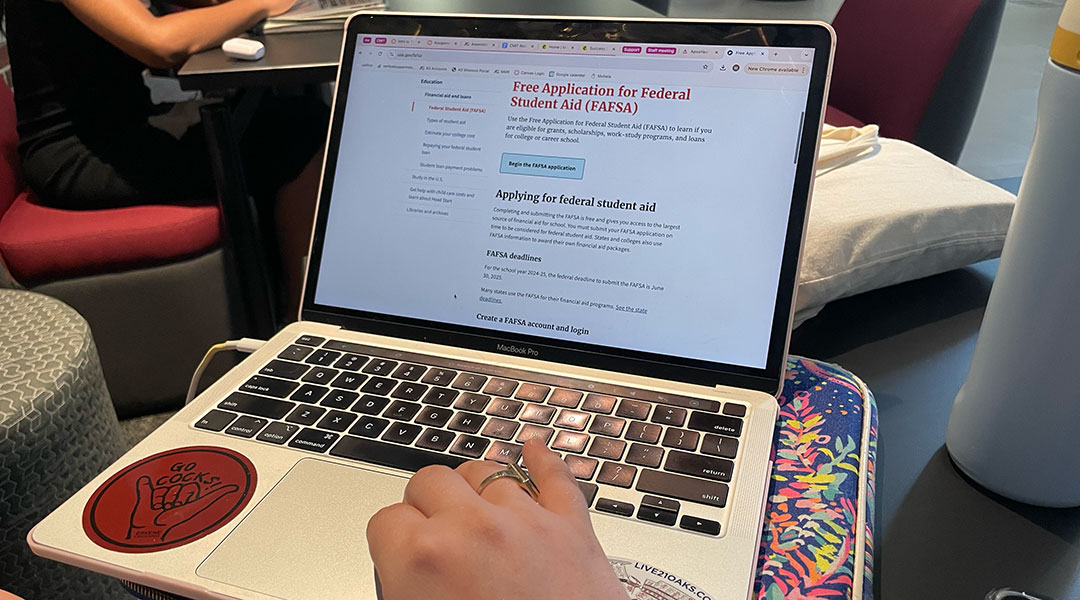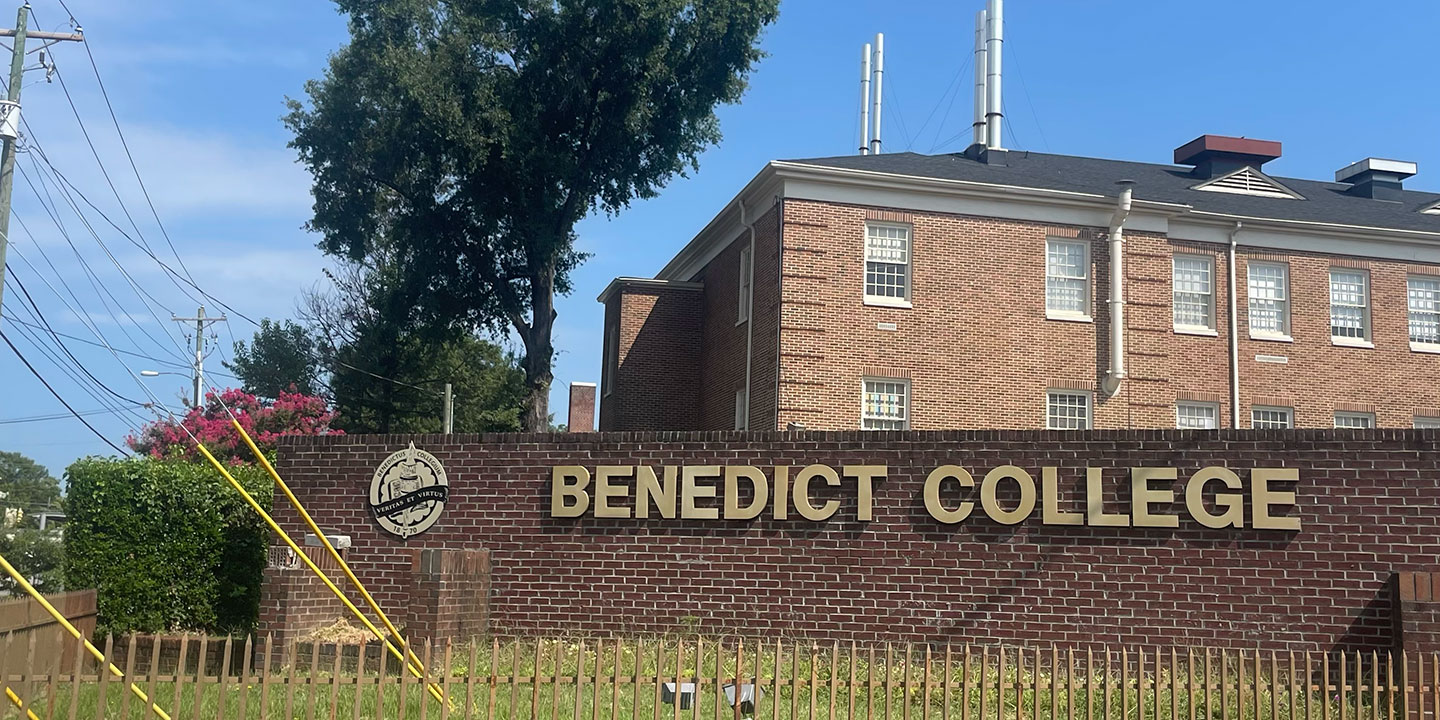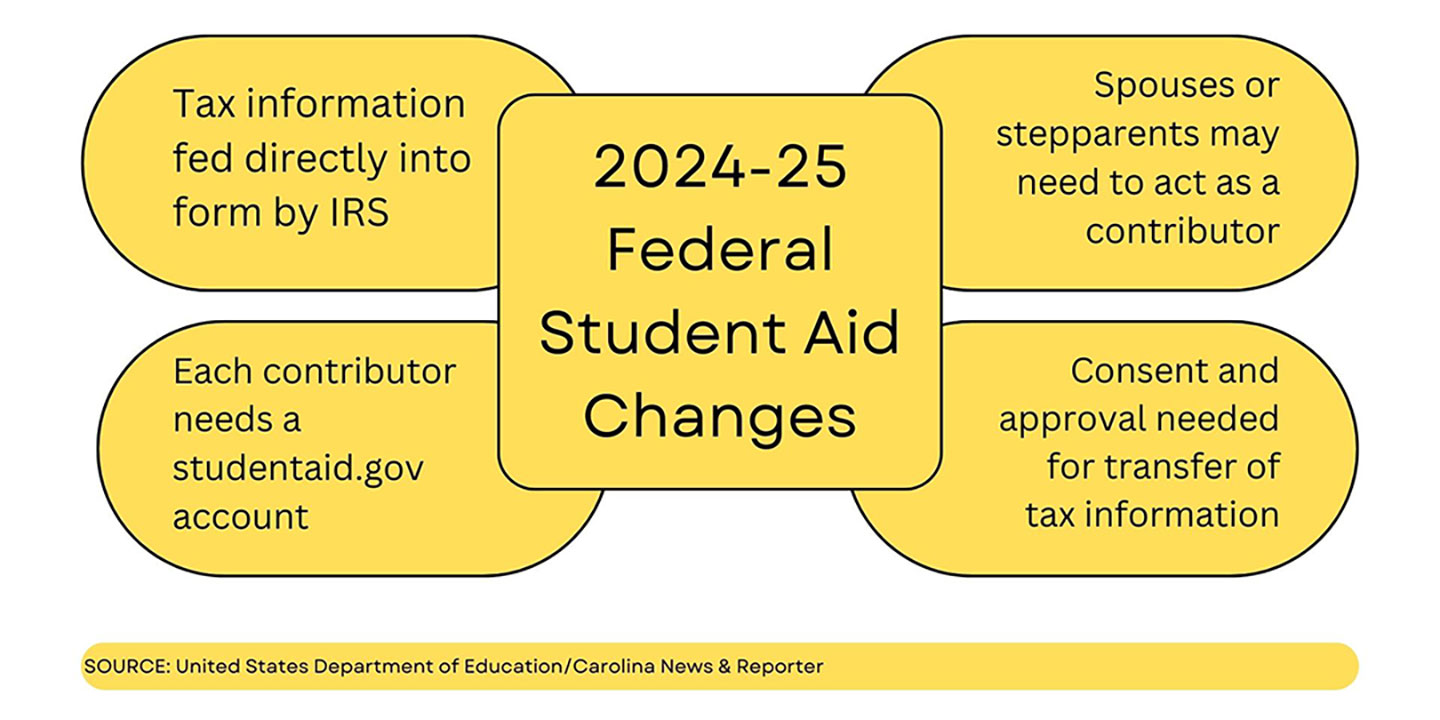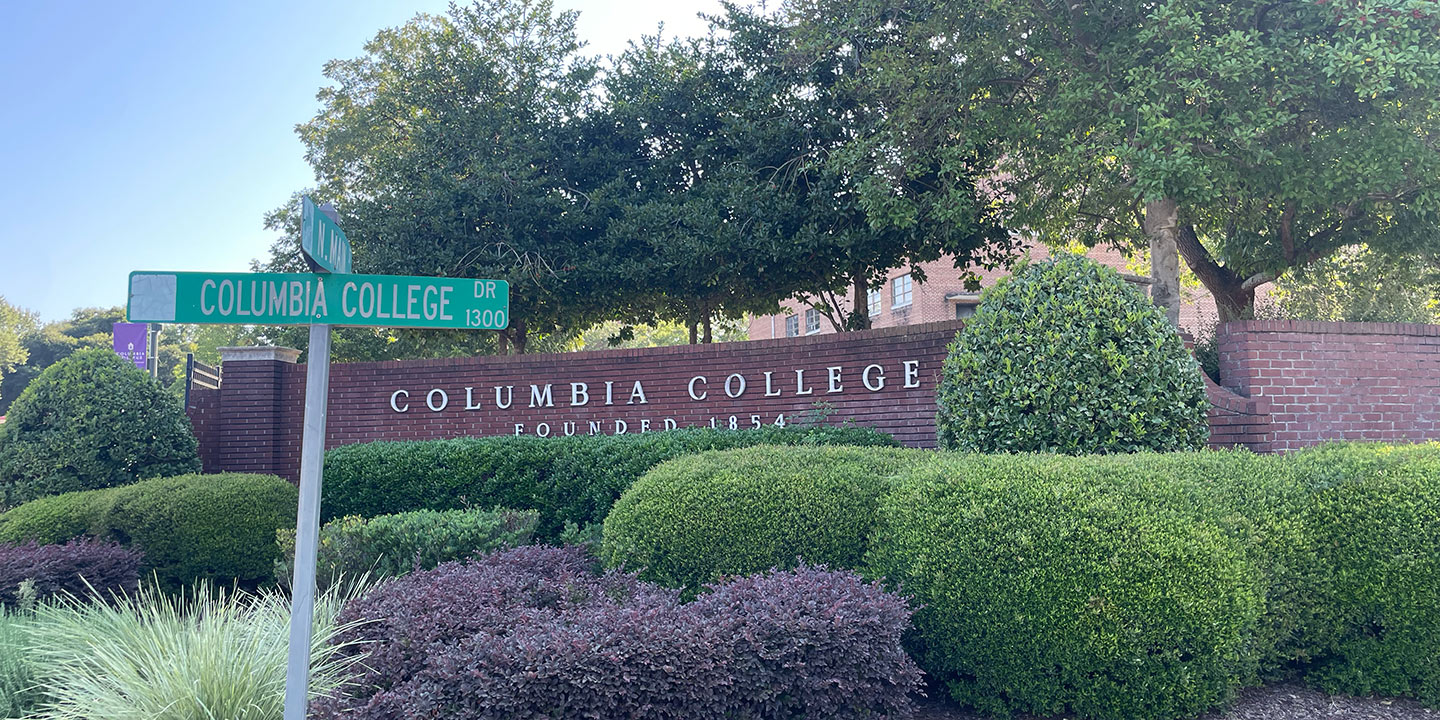A student reads the directions to apply for federal financial aid through the U.S. Department of Education. (Photo illustration by Sydney Zulywitz/Carolina News & Reporter)
When Aug. 7 came around this year, students filled the sidewalks, classrooms and halls at Benedict College for their first day of class.
Tyler Smith had anticipated that day all summer but had to watch it all from the sidelines at his home in Hampton, South Carolina.
His federal financial aid had not yet come through, and he couldn’t join his two cousins in their return to campus.
Smith had to wait to begin his sophomore year for a “week or two” into the semester while his aid was processed.
He said he was “low-key mad,” because his cousins already were at school and calling him constantly.
“They’d be like, ‘Yo, when you coming, when you coming?’ I would say a certain day, then that certain day would come and I’d be like, ‘Bro, they ain’t filled my stuff out yet,’” he said.
Smith attributes his enrollment delays to issues he had filling out and submitting the Free Application for Federal Student Aid, a problem students across the nation have faced amidst changes in the form last year.
The form’s release was delayed from October to December 2023. The revision included new questions and language that confused Smith and other students. Each student had to include a “contributor” on their application, a spouse or parent, for purposes of IRS household income verification.
Students were falsely claiming they were independent after misunderstanding the language used in the new questions involving those contributors.
Smith included his employment on the form and classified himself as independent. His aid did not come until he could change his response with the help of Benedict’s financial aid office.
After the fall semester had already begun.
Other universities in Columbia faced an influx of calls like Smith’s asking for help fixing their forms. ‘Lola Kennedy, the senior director of financial aid at Columbia College, said her office is still helping students correct their forms even though the fall semester has already started.
Kennedy said most of the calls come from first-generation college students and students with grandparents as their legal guardians who are unfamiliar with the form and technology.
She sat on the phone listening to a student’s grandmother cry after receiving help confirming the student’s independent status.
“She was happy that her baby got to get in school and get her financial aid that she needed to help her pay for her tuition and fees,” Kennedy said.
Kennedy stressed the importance of students knowing how to properly fill out the form. Columbia College hopes its outreach and tutorials can help more students become FAFSA literate, she said.
“Without it, some of our students would not be able to come to school,” Kennedy said.
Senior Alivia Cunningham has watched the makeup of Columbia College change since the spring semester.
“There’s a lot of people that ended up transferring in general because they were having a lot of problems with financial aid,” Cunningham said. “Stuff like that kind of changes people’s decisions on where they want to go.”
That sentiment reigns true even at a large public school such as the University of South Carolina.
Freshman Amayjai Boyd dreamed of being a Gamecock. But his acceptance letter wasn’t enough to get his hopes up.
He awaited nervously as the May 1 National College Decision Day approached and he still had not heard anything about the federal aid he applied for.
“If the FAFSA didn’t come through, I wouldn’t have came here,” Boyd said. “I couldn’t have.”
He made alternate plans to attend S.C. State University or try for a football scholarship somewhere. But he wants to be an entrepreneur and business owner.
“This is my dream school, and they have one of the best business schools, so it just made sense,” he said.
Boyd finally received the aid, a month after Decision Day had passed.
The U.S. Department of Education is delaying the FAFSA application process by two months for next year, the second year in a row, to combat the technical problems. And it’s rolling out a simpler form.
“We hope that FAFSA is able to work out any bugs or other technical difficulties that they had,” Kennedy said. “So there won’t be a repeat of this year to help simplify the process for the student and the student’s parents.”
The entrance sign to Benedict College sits at the corner of Taylor and Harden streets in downtown Columbia. (Photo by Sydney Zulywitz/Carolina News & Reporter)
The Department of Education made several key changes to the 2024-25 Free Application for Federal Student Aid. (Graphic by Sydney Zulywitz/from Department of Education/Carolina News and Reporter)
An entrance sign borders the campus of Columbia College. The school’s financial aid office is still correcting students’ federal aid for the 2024-25 school year. (Photo by Sydney Zulywitz/Carolina News & Reporter)
ABOUT THE JOURNALISTS
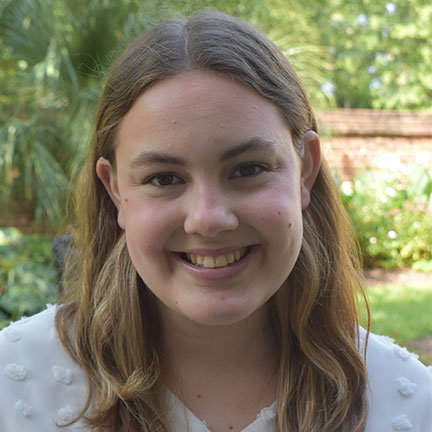
Annie Poteat
Poteat is a journalism major at USC, concentrating in sports media. She interned with GamecockCentral.com and has worked as an assistant sports editor and managing editor for the Daily Gamecock. Poteat now is an intern with Gamecock Athletic’s Communications Department and hopes to be a sports information director upon graduation.

Sydney Zulywitz
Zulywitz is a junior journalism major minoring in informatics. She has contributed to the student-run publication, The Daily Gamecock as an Arts & Culture writer. In the future, she wants to bridge the gap between information and understanding as an investigative reporter. She also aspires to write for National Geographic or the National Parks Service.

